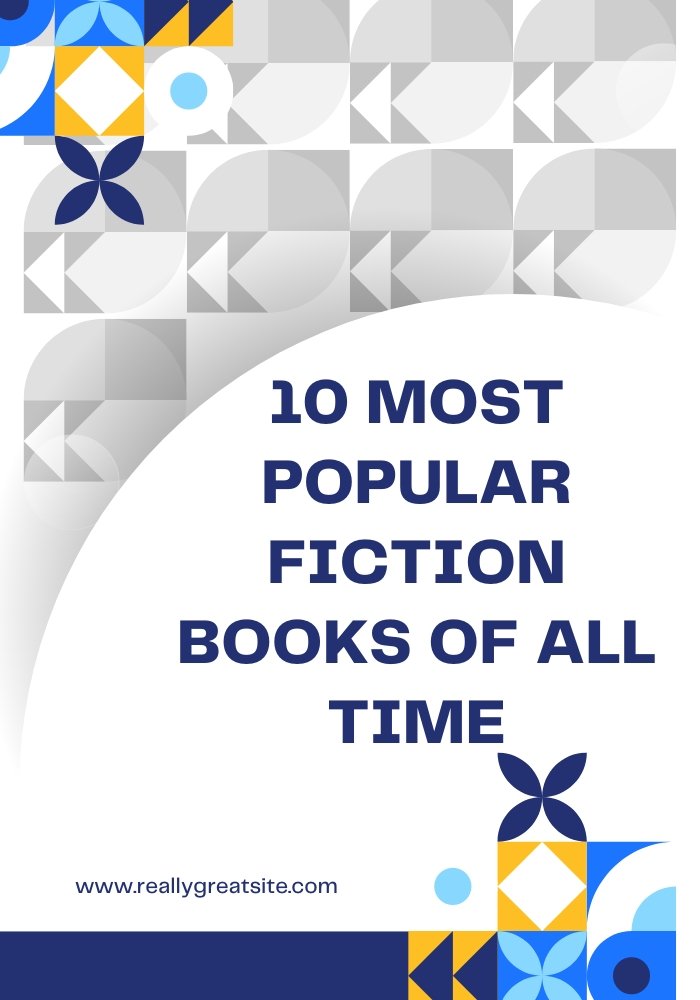Dive headfirst into the turbulent waters of mental health with books that do more than narrate—they expose the raw, personal battles with mental challenges. In this blog post, we’ll uncover 10 groundbreaking nonfiction books that cut through medical speak, sharing stories that are as enlightening as they are raw.
These authors don’t just share their battles; they throw you a lifeline, revealing resilience in their rawest moments. Whether you’re intimately involved with mental health issues, support someone who is, or are just curious to learn more, these books are invaluable. They arm you with practical advice, introduce new research, and shift your perspective on mental health.
Join us as we tear down the walls of mental health stigma, one book at a time, pushing you to rethink mental well-being. Each review in this post aims to challenge, engage, and encourage reflection on how mental health impacts all of us. These stories are more than just accounts; they are tools for building empathy and understanding, crucial for creating healthier minds and communities.
Ready to turn the page? Let’s redefine mental health together, one story at a time. This journey through literature promises to bridge gaps in understanding and inspire change with every page turned.
“The Noonday Demon: An Atlas of Depression” by Andrew Solomon

Andrew Solomon’s “The Noonday Demon” plunges into depression’s dark waters—a pervasive beast hidden yet omnipresent. In this book, Solomon masterfully mixes his own gritty battles with depression with extensive research, bringing this dark subject into the light with vivid clarity.
He shows how depression casts a long, varying shadow across different cultures and social classes. Through these diverse voices, Solomon not only educates but also connects emotionally with readers, making the complex nature of depression both understood and deeply felt.
His prose flows like a fierce river; his insights cut deep. Solomon’s skill at weaving hard facts with harrowing personal narratives is downright spellbinding. He transforms the clinical into the visceral, making the statistics breathe and the personal stories ache with truth.
“The Noonday Demon” is more than just a book; it’s a tale of redemption from the edge of hopelessness and a potent example of the resiliency of the human spirit. In order to encourage compassion and support in their personal and professional lives, it speaks to individuals who have suffered, are suffering, or seek to comprehend the depths of mental misery. This book pulls you in by the lapels and leaves you with a lingering, urgent call to action while insisting that you face the realities of despair.”The Noonday Demon” is more than just a book; it’s a tale of redemption from the edge of hopelessness and a potent example of the resiliency of the human spirit. In order to encourage compassion and support in their personal and professional llives it speaks to individuals who have suffered, are suffering, or seek to comprehend the depths of mental misery. This book pulls you in by the lapels and leaves you with a lingering, urgent call to action while insisting that you face the realities of despair.
### Final Review of “An Unquiet Mind: A Memoir of Moods and Madness” by Kay Redfield Jamison

Kay Redfield Jamison throws open the doors to the erratic world of bipolar disorder in “An Unquiet Mind.” This memoir is unique because Jamison narrates not only as a patient grappling with the disorder but also as a clinician who studies it. This dual perspective lends an unmatched depth and authenticity to her story, making it a profound read for anyone seeking to understand the complexities of bipolar disorder.
Her prose dances across the pages, vividly capturing the dizzying highs of mania and the oppressive depths of depression. Jamison’s narrative transcends mere recounting; it plunges you into the thrilling rushes and crushing despairs of bipolar disorder. She lays bare the impact of bipolar disorder on relationships and professional life, yet her account is imbued with hope and resilience, illustrating how one can lead a fulfilling life despite mental illness.
Her openness isn’t just refreshing—it’s revolutionary, dispelling the shadows of misunderstanding that cloak mental illness. Jamison’s candid, heart-wrenching insights challenge and change how we perceive mental disorders, breaking down barriers of stigma with each page.
“This memoir serves both as a testament to the human spirit and a guidepost for anyone navigating this tumultuous path, whether for themselves or alongside a loved one.” “An Unquiet Mind” is not just Jamison’s story; it’s a beacon of hope and resilience, showcasing the profound strength required to navigate the stormy seas of mental health with dignity. This memoir deeply influences its readers, leaving a lasting impression of courage and an understanding of bipolar disorder’s real-life impacts.
### Revised Review of “The Center Cannot Hold: My Journey Through Madness” by Elyn R. Saks

Elyn R. Saks’s “The Center Cannot Hold” offers a stark, unflinching gaze into the tumult of schizophrenia. As a professor of law and psychology, Saks defies common misconceptions about schizophrenia, narrating her journey with a gripping, almost literary flair that challenges the stereotypes and stigma typically associated with this severe mental illness.
Saks weaves her narrative with intellectual rigor and deep personal vulnerability, detailing her internal struggles and external challenges with such clarity that readers feel immersed in her world. She masterfully balances vivid descriptions of her hallucinations and fears with candid revelations on how she masters life with a relentless mental foe, all while maintaining her professional success and personal stability.
Her book reaches out with both hands, pulling in readers who may feel adrift in their struggles, offering not just solace but practical strategies for managing life with severe mental illness. Saks’s resilience and her commitment to her career and personal life serve as a powerful reminder of the potential for living well with mental illness.
Saks’s narrative is more than inspiring; it’s a vital contribution to the mental health dialogue, demanding better understanding and treatment for schizophrenia. Her story is not just about survival but thriving amidst adversity, making it a crucial voice in advocating for change and understanding in mental health care.
### Final Review of “The Body Keeps the Score: Brain, Mind, and Body in the Healing of Trauma” by Bessel van der Kolk

Bessel van der Kolk’s “The Body Keeps the Score” dramatically reshapes our understanding of trauma, unveiling its profound effects on our brain, body, and psyche with pioneering insight. As a leading expert in trauma treatment, van der Kolk draws from his extensive experience and role in developing new therapeutic practices to illuminate the often invisible impacts of trauma.
Van der Kolk writes with an authority that is both commanding and inviting, making complex scientific insights accessible and actionable. His authoritative voice is compelling because it is grounded in decades of research and clinical practice, offering a deep, empathetic understanding of trauma’s toll and paths to recovery.
He champions innovative therapies that break the mold of traditional treatment, such as yoga and mindfulness, which he demonstrates through vivid case studies showing their effectiveness in treating trauma’s physical residues. These methods move beyond conventional talk therapy by addressing the somatic symptoms of trauma, offering a new lease on life for many sufferers.
“The Body Keeps the Score” is more than educational—it’s a transformative exploration that redefines recovery from trauma. Van der Kolk’s holistic approach fuses mental and physical recovery strategies, providing not just insights but practical pathways to reclaim lives. He argues compellingly for these methods, as illustrated in a poignant case where a patient finds new strength through integrated therapy.
This book stands as a crucial resource, encouraging a broader, more integrated view of recovery. Its implications for future treatments and public perceptions of trauma suggest a shift toward a more compassionate and holistic approach in mental health care. For anyone touched by trauma, “The Body Keeps the Score” offers not just understanding but a practical and hopeful guide to healing, making it an indispensable tool in the journey towards a healthier, more integrated self.
### Revised Review of “Girl, Interrupted” by Susanna Kaysen

Susanna Kaysen’s “Girl, Interrupted” thrusts readers into the stark realities of a 1960s psychiatric ward, through the eyes of a young woman institutionalized during her coming-of-age. This memoir stands out for its unflinching portrayal of life within the confines of a psychiatric ward, offering a critical examination of the mental health care system and its treatment of female patients.
Kaysen combines biting wit with piercing clarity, crafting a narrative that’s as engaging as it is reflective. Her story is not just a recounting of experiences but a profound critique interspersed with the medical documents and case studies that once defined her as a patient. These elements add a jarring counterpoint to her vivid personal recollections, challenging our perceptions of sanity and the stigma surrounding mental health.
Her narrative, laced with actual medical documents, provides a stark contrast between her perceptive observations and the clinical, often dehumanizing medical descriptions. This duality prompts readers to question the nature of sanity and the deeply ingrained stigmas attached to mental illness.
“Girl, Interrupted” goes beyond a mere memoir; it ignites a crucial dialogue on cultural perceptions of mental health and the systemic failures in treating mental illness, especially among women. Kaysen’s sharp critique cuts to the heart of gender and societal biases, making her story an essential read for those interested in the critical intersections of gender, society, and mental wellness.
Kaysen’s account is not just eye-opening—it’s a rallying cry for empathy and reform in mental health care, offering invaluable insights into the personal and political spheres of mental disorders. This memoir is more than a personal recounting; it’s a conversation starter about the cultural perceptions of mental health and the treatment of those diagnosed with mental disorders, advocating for the necessity of empathy and reform in mental health care practices.
### Revised Review of “Darkness Visible: A Memoir of Madness” by William Styron

At the height of his literary fame, William Styron presents a masterful and concise memoir, “Darkness Visible,” documenting his harrowing battle with depression. This account brings a novelist’s sensibility to the stark realities of mental illness, crafting a narrative that is both eloquently poignant and painfully vivid.
With a novelist’s sensibility, Styron infuses his narrative with eloquence and a piercing introspection, making the painful journey into depression vivid and palpable. His writing not only captures the personal turmoil but also illuminates the broader societal misunderstandings and the frequent mistreatment of depression, offering crucial insights into its complex nature.
Styron articulates the indescribable facets of depression—its profound despair, the erosion of self, and the elusive quest for hope—with a clarity that only a seasoned novelist could achieve. His candidness about the depths of his despair and the challenges of seeking help during a time when medical responses were often inadequate is both moving and enlightening.
He is forthright about the era’s limitations in medical treatments and calls for deeper research and understanding, advocating for advancements that truly address the complexity of depression. His advocacy underscores the urgent need for society to reevaluate and enhance the ways it responds to mental health issues.
“Darkness Visible” not only gives voice to those who suffer in silence but also calls on society to acknowledge and address depression as the severe and debilitating condition it is, marking a vital step toward destigmatizing mental health issues. Styron’s narrative stands as a beacon for those struggling silently, offering them not just visibility but also a voice, and serves as a crucial reminder of the importance of understanding and addressing mental illness with the seriousness it demands. This memoir is essential reading for anyone looking to grasp the profound impact of mental health on personal and societal levels.
### 7. “Furiously Happy: A Funny Book About Horrible Things” by Jenny Lawson
Jenny Lawson’s “Furiously Happy” tackles mental illness with an irreverent and often hilarious perspective, making it a standout in the realm of mental health literature. Lawson uses humor as a tool to cope with her own experiences with depression and anxiety, challenging the stigma surrounding mental illness and offering an uplifting message to others battling similar issues.
The book is a collection of essays that range from deeply personal to wildly absurd, all woven together with Lawson’s unique brand of humor. She writes with an unfiltered honesty that is both refreshing and relatable, making readers laugh while also striking a chord with those who might feel isolated by their struggles. Her approach to mental health is not about minimizing the pain but about finding joy and absurdity in the midst of suffering.
“Furiously Happy” is not just entertaining; it’s a lifeline for those who need to hear that they’re not alone in their struggles. Lawson’s ability to laugh at the darkest parts of her life offers a powerful message of resilience and hope. This book is a must-read for anyone looking for a different, more lighthearted perspective on mental health, proving that laughter can be a profound form
of therapy.
### Revised Review of “Wasted: A Memoir of Anorexia and Bulimia” by Marya Hornbacher

Marya Hornbacher’s “Wasted” plunges into the devastating heart of eating disorders with unvarnished brutality and sharp insight. This intensely powerful memoir provides a stark look at the destruction wrought by anorexia and bulimia on Hornbacher’s body and life, offering an unflinching glimpse into the complex psychological dynamics that drive these disorders.
Hornbacher employs brutal honesty and sharp insights as she lays bare the self-destruction wrought by anorexia and bulimia, painting a distressing yet compelling portrait of the mental and physical decimation these disorders entail. Her narrative is vivid and forceful, capturing the obsessive and self-destructive thoughts that characterize eating disorders in a way that is both enlightening and deeply moving.
She does not shy away from detailing the visceral, often harrowing physical effects and the immense emotional turmoil, making “Wasted” a profoundly impactful read. The audience is left both enlightened and deeply moved, faced with the harsh realities of these disorders through Hornbacher’s personal saga.
“Wasted” transcends the personal, exploring how cultural pressures and personal battles mold our understanding of and responses to eating disorders. Hornbacher’s story extends beyond her individual experiences to touch on larger societal issues, providing a unique lens through which we can view these pervasive conditions.
Hornbacher’s stark depiction challenges pervasive stereotypes and simplifications, offering a layered exploration of recovery and the ongoing battles faced by those with eating disorders. Her memoir is not only a testament to human resilience but also a crucial call for a deeper, more empathetic approach to understanding and treating these complex conditions. “Wasted” is essential reading for anyone seeking to grasp the intricate dynamics of eating disorders and is a rallying cry for societal change in how these conditions are perceived and treated.
### Revised Review of “The Man Who Couldn’t Stop: OCD and the True Story of a Life Lost in Thought” by David Adam

In “The Man Who Couldn’t Stop,” David Adam—an accomplished science writer with a personal battle against obsessive-compulsive disorder—offers a riveting exploration of OCD that intertwines personal anecdotes with rigorous scientific analysis. This blend provides a unique perspective that makes the complex medical information accessible and deeply engaging.
Adam masterfully balances his personal struggles with OCD with a broader scientific perspective, making complex medical theories both accessible and compelling. His ability to translate intricate research into engaging narrative deepens our understanding of OCD’s grip on the mind and the various ways it can manifest. Through vivid anecdotes and sharp insights, Adam brings the abstract symptoms of OCD to life, offering readers an intimate glimpse into the relentless nature of intrusive thoughts and the everyday challenges they pose.
“The Man Who Couldn’t Stop” goes beyond clichéd portrayals of OCD, challenging outdated stereotypes by showcasing the disorder’s complex reality. Adam provides a nuanced view of OCD, from the paralyzing impact of intrusive thoughts to the broader societal misunderstandings that exacerbate the stigma. His exploration of the challenges of living with OCD, from the intrusive thoughts that dominate his daily life to the stigma that comes with mental illness, is both informative and deeply personal.
Adam’s blend of personal revelation and scientific exploration not only demystifies OCD but also illuminates the path to understanding and managing it, making “The Man Who Couldn’t Stop” an indispensable resource for anyone touched by mental illness. This book is a significant contribution to the conversation about mental health, offering hope and understanding to those affected by OCD and providing valuable perspectives on treatment and coping strategies.
### Revised Review of “Lost Connections: Uncovering the Real Causes of Depression – and the Unexpected Solutions” by Johann Hari

Johann Hari’s “Lost Connections” challenges the conventional understanding of depression and anxiety with a bold thesis that looks beyond brain chemistry to the societal structures that influence our mental health. Hari presents a radical view that diverges from traditional medical models, arguing that the root causes of depression are largely found in our environment and the way society is structured.
Hari delves into how our disconnection from meaningful work, vibrant community ties, and the natural world can fuel depression, urging readers to reassess the roots of mental health beyond the individual. His exploration includes personal stories, scientific research, and interviews with experts to build a compelling case for his holistic approach to understanding depression.
With a compelling narrative style, Hari not only presents a cogent argument but also engages and persuades readers to consider depression through the lens of environmental and societal influences. His writing is persuasive and engaging, challenging readers to think about depression in new ways and suggesting changes that can lead to more substantial, lasting relief.
“Lost Connections” has ignited a fiery debate among experts and laypeople alike, challenging entrenched psychiatric models and advocating for a paradigm shift in how we understand and treat depression. Hari’s insights into the societal aspects of depression are an essential addition to the discourse, promoting a broader understanding of mental health that includes social, economic, and environmental factors.
Hari’s exploration into the societal underpinnings of depression not only broadens the conversation but also proposes a transformative shift in addressing mental health, emphasizing the need for systemic changes that could offer deeper, more enduring solutions to widespread mental distress. This book is both controversial and enlightening, serving as a crucial call to action for all involved in mental health care and policy to consider and implement broader, more integrated approaches to mental health treatment.
—
Refined Conclusion
These 10 books traverse a vast landscape of mental health, each offering unique insights into personal battles, societal challenges, and the complex interplay between the two. From intimate memoirs to critical examinations of psychiatric practices, these works not only deepen our understanding of mental disorders but also challenge societal norms and treatments, urging a reevaluation of how mental wellness is cultivated and sustained.
Through personal stories of resilience and scientific exploration, these authors not only offer solace but also inspire us to advocate for change, both in our personal lives and within the broader mental health system. As crucial resources for anyone seeking to understand the intricacies of mental health, these books are not just to be read—they are to be acted upon, prompting us to foster a more empathetic and informed society.






